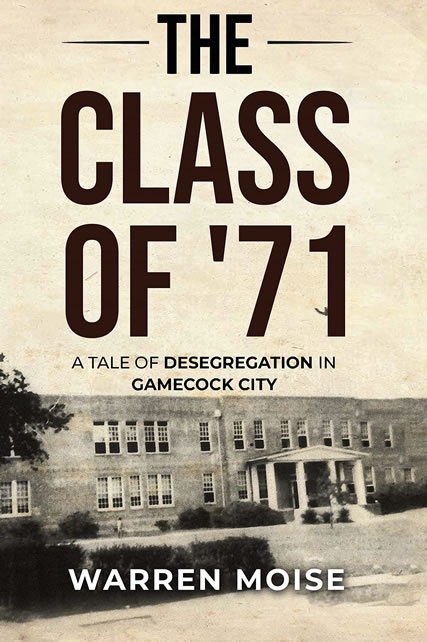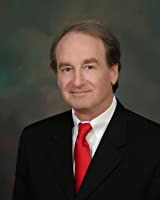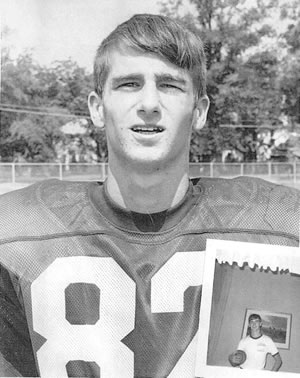
When the Class of 71 began first grade as young children in 1959, they lived in a totally segregated society. Except for some few prior student transfers and with limited other exceptions, the black and white members of the Class of 71 had never met, played together, gone to church with one another, eaten food at the same lunch counters, or swum together in the same pools. All of that would change on the first day of their senior year.

Biography
Warren Moise is a trial lawyer in Charleston, South Carolina. Born in Bishopville, he graduated from Sumter High School in 1971, and attended the University of South Carolina before becoming a professional musician, songwriter, music publisher, studio musician, and record producer. Warren played and composed songs, and/or recorded with groups such as Bill Pinckney and the Original Drifters, Maurice Williams, Clifford Curry, the Band of Oz, Second Nature, and Billy Joe Royal in the 1970s and 1980s, and traveled around the world with his own group. In the mid-1980s, he began recorded with the Chairmen of the Board, playing and singing backup on beach music standards such as Carolina Girls.
Warren taught evidence and trial advocacy at both of South Carolina's law schools and spoken at South Carolina Judicial Conferences. He's written a column for the Bar's South Carolina Lawyer Magazine for 19 years.
See Warren's attorney profile on: Gimball & Cabaniss LLC.
Visit Warren's website: Warren Moise, Award Winning Lawyer, Musician, and Author.

By Prioleau Alexander *
In his nonfiction book, The Class of '71, Warren Moise attempts to do the very, very difficult: tell the true story of the events outlined by the subhead of the book: A Tale of Desegregation in Gamecock City.
For those unaware, "Gamecock City" is the nickname for Sumter, South Carolina, a sleepy small town still hobbled by Reconstruction in 1971. At that time, it was the type of Southern town that academics and elite New Englanders felt sure was still lynching young black men.
As a writer, it seems I'd know better than to judge a book by its cover, but the truth is I did not expect to like the book - mostly because the current political environment seems to be opposed to "all things white Southern male," and celebrates "woke" books filled with self-flagellation and white self-loathing. In writing the book, however, Mr. Moise made the bold decision to tell the story without hyperbole, spin or bias.
Mr. Moise's efforts explore the overnight desegregation of the high schools in Sumter and the impact it had on two separate student bodies now thrust together. He handles the topic with first-hand realism, humor, anecdotes and research. He paints a picture of the time and place where this radical desegregation occurred, never trying to make himself appear anything more than a typical teenager viewing the events as they unfolded. He also explores his topics with a self-disciplined adherence to telling the story without the benefit of adult wisdom and hindsight.
Because of his lack of bias, his readers are forced to understand the class of '71 in the context of the times.
A surprising part of his book is his decision to include wonderfully descriptive tales of life as a teen in Gamecock City. The stories of the small-town characters and changing times are nothing less than charming - from local war heroes and high school football, to the arrival of hot pants and an unrequited first love. It is through these first-person tales that the reader comes to understand the writer is telling a real and personal story.
Mr. Moise also takes the very bold step of pointing out examples of who did things right and who did things wrong. One extremely surprising example was his thoughts on Judge Waties Waring, now practically canonized as a civil rights visionary, run out of town for his enlightened views. Mr. Moise challenges the "run out of town for being enlightened" narrative and notes that Judge Waring's wife gave a speech at the YMCA during which she described Southern white people as, "a sick, confused and decadent people" who were "introverted, morally weak and low." Anyone describing their neighbors that way should expect a paucity of dinner invitations.
Mr. Moise also holds no punches when exploring the mistakes and missteps of the white school board and administration, who were wholly unprepared for the challenges of overnight segregation. In short, there are few protagonists and antagonists - simply flawed people making flawed decisions.
Out of the blue, he hits the reader with the terrifying reality that serial killer Donald "Pee Wee" Gaskins was an "honorary" member of his class, as Pee Wee moved to Sumter after being paroled in 1968 from Columbia Correction Institute - arguably one of the most dangerous prisons in America. Sumter was Gaskins' base of operations, from which he went on to torture and murder dozens of young girls and boys.
During the class of '71's senior year, Gaskins claimed he was striking once every six weeks, a statistic not lost on his class. How Gaskins was able to carry out his reign of terror for so long while operating out of Gamecock City, Mr. Moise doesn't attempt to guess . but he does share a personal brush with the law that put him "one degree of separation" from Gaskins.

Warren Moise's football yearbook photo
There are too many aspects to his work to explore completely in a review - coverage of the story by the New York Times, riots and unrest in the school, the healing power of sports, the negative impact of the segregation hangover and that special wisdom that comes when young people put race aside and become friends.
The Class of '71: A Tale of Desegregation in Gamecock City is, thankfully, not an academic book. It is an account of extraordinary times and ordinary people. Mr. Moise certainly possesses the insights needed to write a nonfiction book with a Southern Gothic accent, but he does not. The result is a true story, providing us an insightful look back in time in the way a biased writer never could.
Warren Moise is a graduate of the University of South Carolina and University of South Carolina Law School. In addition to his work as an author, he is a trial lawyer and former adjunct professor at both South Carolina law schools,
* The writer of this "Charleston Mercury" article, Prioleau Alexander, is a native son of Charleston, S.C. and a graduate of Porter-Gaud School, Auburn University, and a former Marine Officer.